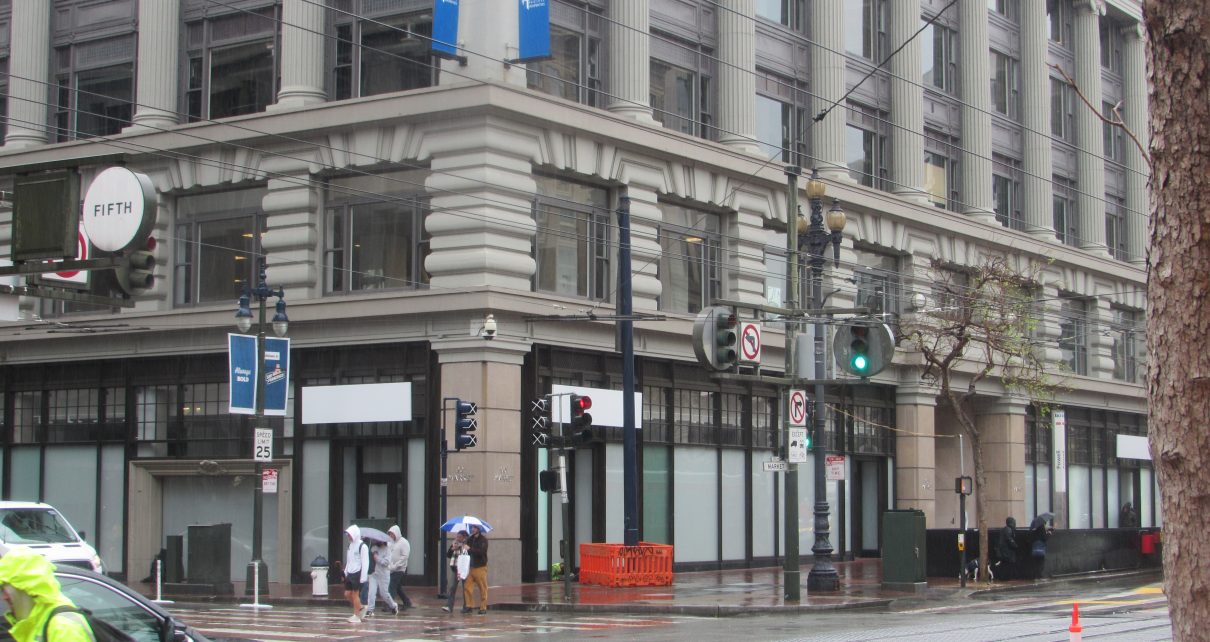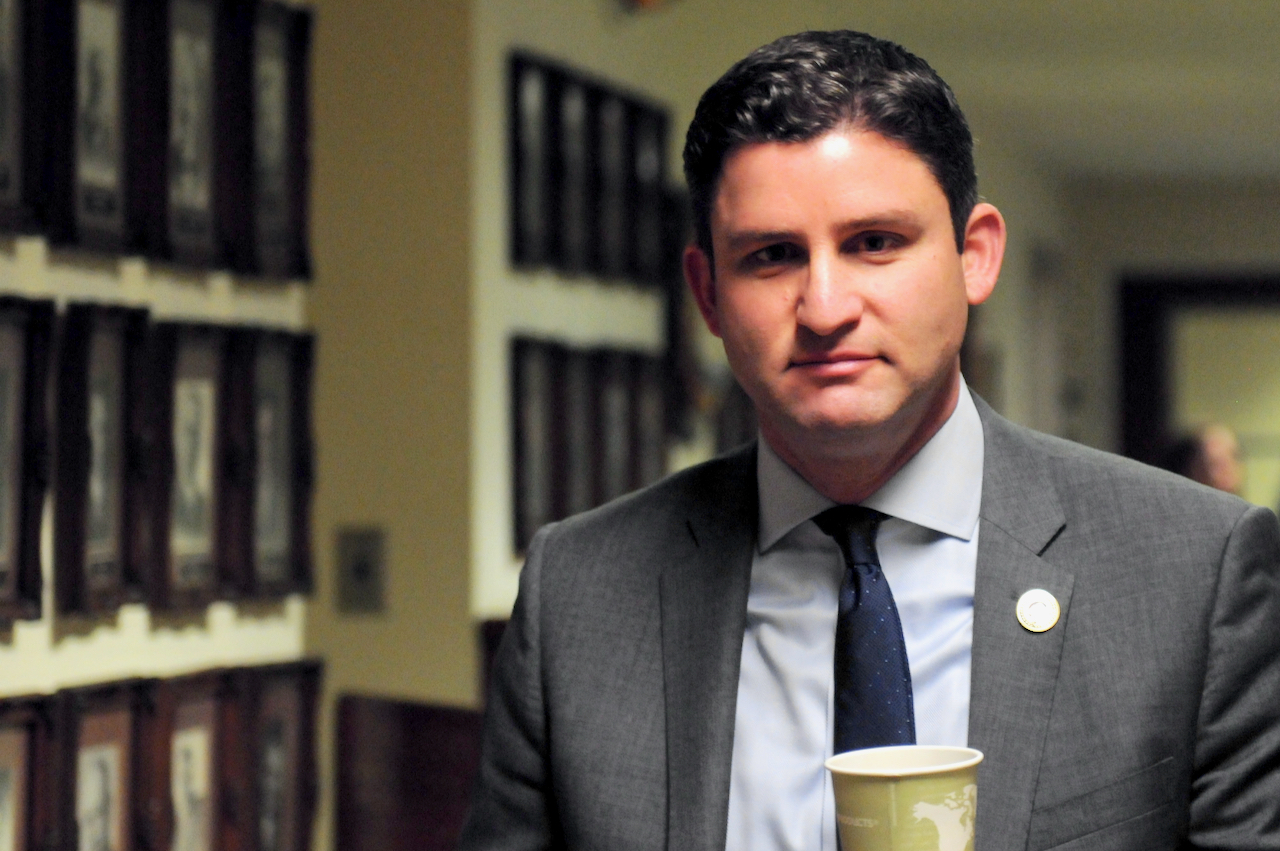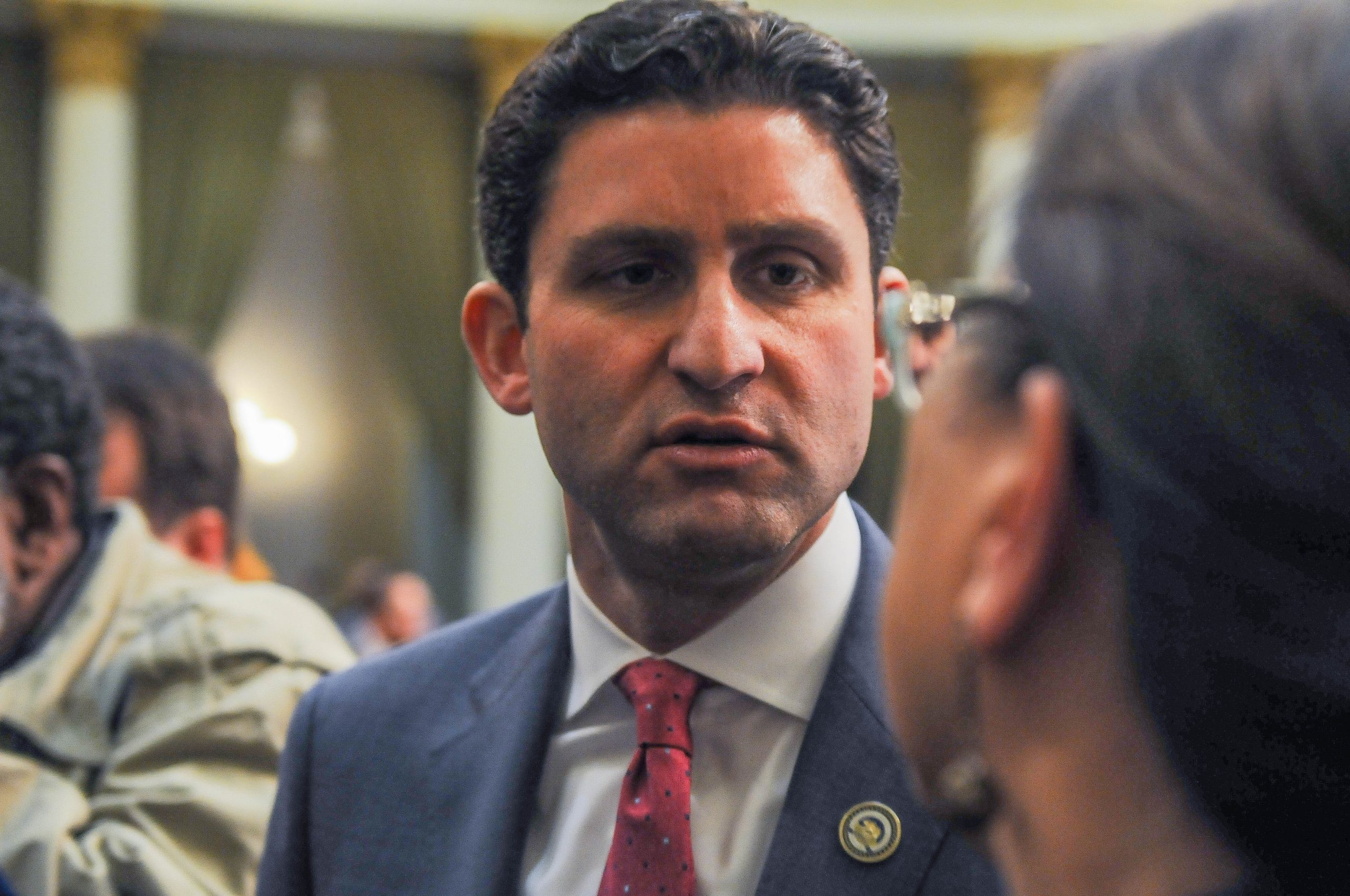
Empty storefronts on Market Street in San Francisco (Photo: Evan Symon for California Globe)
Small Business ‘Uncertainty’ Reaches Highest Level Since Pandemic Forced Business Closures
Twenty- two percent of owners reported that inflation was their single most important problem in operating their business
By Katy Grimes, June 14, 2024 7:15 am
The National Federation of Independent Businesses released a new survey showing the highest Small Business “uncertainty” since 2020 during the pandemic, when “nonessential” businesses were forced to shut down.
“The small business sector is responsible for the production of over 40% of GDP and employment, a crucial portion of the economy,” said National Federation of Independent Business Chief Economist Bill Dunkelberg. “But for 29 consecutive months, small business owners have expressed historically low optimism and their views about future business conditions are at the worst levels seen in 50 years. Small business owners need relief as inflation has not eased much on Main Street.”
Here are some highlights:
Labor markets:
Forty-two percent (seasonally adjusted) of all owners reported job openings they could not fill in the current period, up 2 points from April.
The difficulty in filling open positions is particularly acute in the construction, manufacturing, and transportation sectors.
Openings were the lowest in the wholesale and agriculture sectors.
Twenty-nine percent of owners reported few qualified applicants for their open positions.
Capital Spending
Fifty-eight percent reported capital outlays in the last six months, up 2 points from April. A recovery in investment is needed to support stronger productivity, but this is unlikely to occur while interest rates remain high, and more owners anticipate slower sales. Long term, the worker shortage has given firms an incentive to invest in labor saving technology.
A more positive view of the future economy and economic policy would help stimulate longer term investment spending, but currently owners’ views about the future are not supportive and financing costs are very high.
Sales and Inventories:
A net negative 14 percent of all owners (seasonally adjusted) reported higher nominal sales in the past three months, down 1 point from April.
A net negative 6 percent (seasonally adjusted) of owners plan inventory investment in the coming months, unchanged from April.
Compensation and Earnings:
Seasonally adjusted, a net 37 percent reported raising compensation, down 1 point from April.
A seasonally adjusted net 18 percent plan to raise compensation in the next three months, down 3 points from April and the lowest reading since March 2021.
Ten percent cited labor costs as their top business problem, down 1 point from April and only 3 points below the highest reading of 13 percent reached in December 2021.
Credit Markets:
Three percent of owners reported that all their borrowing needs were not satisfied, unchanged from April.
Twenty-nine percent reported all credit needs met (up 1 point) and 58 percent said they were not interested in a loan (down 2 points).
A net 6 percent reported their last loan was harder to get than in previous attempts (down 2 points).
Six percent reported that financing was their top business problem in May (up 2 points).
The last time financing as a top business problem ranked this high was June 2010.
Inflation:
The net percent of owners raising average selling prices was unchanged from April at a net 25 percent seasonally adjusted.
Twenty- two percent of owners reported that inflation was their single most important problem in operating their business, unchanged from April.
Unadjusted, 12 percent (down 1 point) reported lower average selling prices and 40 percent (down 1 point) reported higher average prices.
Price hikes were most frequent in the retail (55 percent higher, 6 percent lower), finance (50 percent higher, 3 percent lower), construction (42 percent higher, 9 percent lower), manufacturing (42 percent higher, 12 percent lower), and services (37 percent higher, 6 percent lower) sectors.
Seasonally adjusted, a net 28 percent plan price hikes in May (up 2 points).
California Small Business Uncertainty
The Globe spoke with NFIB California State Director John Kabateck about the small business sector in California, and what he is seeing. “Before anyone wants to give Congress sole blame for NFIB’s finding that small business owners expecting future business conditions to be better at its worst level in 50 years, consider California’s role in making the opening and operating of a Main Street enterprise as hospitable as delivering mail to the Munsters or Addams Family.”
“Right now, a Legislature under the thrall of progressives is having a difficult time addressing the state’s retail theft epidemic without daring to upset the Proposition 47 furies they all pay slavish devotion to. Should they come to some agreement, they can turn next to a union-supported proposal to give striking workers unemployment benefits from a fund that, in an only-in-California touch, is bankrupt and in hock to the federal government for around $20 billion.”
“In most states, one minimum-wage rate will do. Thank you. But not in pioneering California, which now has separate rates for fast-food workers, some health-facility employees, and, because the state allows cities and counties to set their own rates, hotel workers.”
“As if to keep small business owners from revolting, Sacramento solons have kept them busy complying with their new workplace violence prevention plans created by last year’s passage of Senate Bill 553. Sit down! You are not done. No one-size-fit-all here. You must have different parts of the plan should one room of your business present its own potential hazard.”
“On and on it goes with more and more taxes, fees, and compliance headaches too numerous to list here. Pretty soon NFIB will have a harder time finding small business owners at all, let alone their attitudes about the future.”
- HHS Acts to Bar Hospitals from Performing Sex-Rejecting Procedures on Children - December 19, 2025
- Top 50 Disasters Gov. Gavin Newsom Has Ushered into California: 2025 Edition - December 17, 2025
- Gov. Newsom Announces Fired Former CDC Officials Will Lead New CA Public Health Exchange - December 16, 2025





Probably too much common sense here for the Usual Suspects in Sacramento to handle.
I almost wish Newsom and his Worshipful Staff of Pronoun People would object to this article too and also demand a Globe retraction for this one. There might be an even better chance of further exposing them as insane than their objections to the report of the 10,000 fast food job loss. Which was also true.
It’s long past time for these Dem politicians to make a U-turn NOW and do the OPPOSITE of what their bad instincts usually tell them to do. Doubt very much that what they’ve been doing is going to work for them much longer. Their luck is running out.
When economic illiterates govern based on fantasyland wishful thinking (Newsomlini), this is what you get. Keep electing fools and reap the rewards. By the way: https://tinyurl.com/4rx43yat
Yeah, that’s a DUH! Another one, right? Thanks for posting, Abe. CA Globe and others cited in this Heartland Institute article posted at Red State.
There won’t be any small businesses left in California if Newsom and the criminal Democrat mafia that controls the state have their way? Their multinational corporate and globalist paymasters like it that way?
Newscum says that California is leading the country by imposing a $20 mnimum wage for fast-food workers. A “living wage”? Yeah, sure [eye roll]. Not with the inflation caused by all of his progressive spending and give-away to the unions. Actually, he’s leading California into a recession if not already there – https://www.zerohedge.com/markets/initial-jobless-claims-surge-10-month-highs.